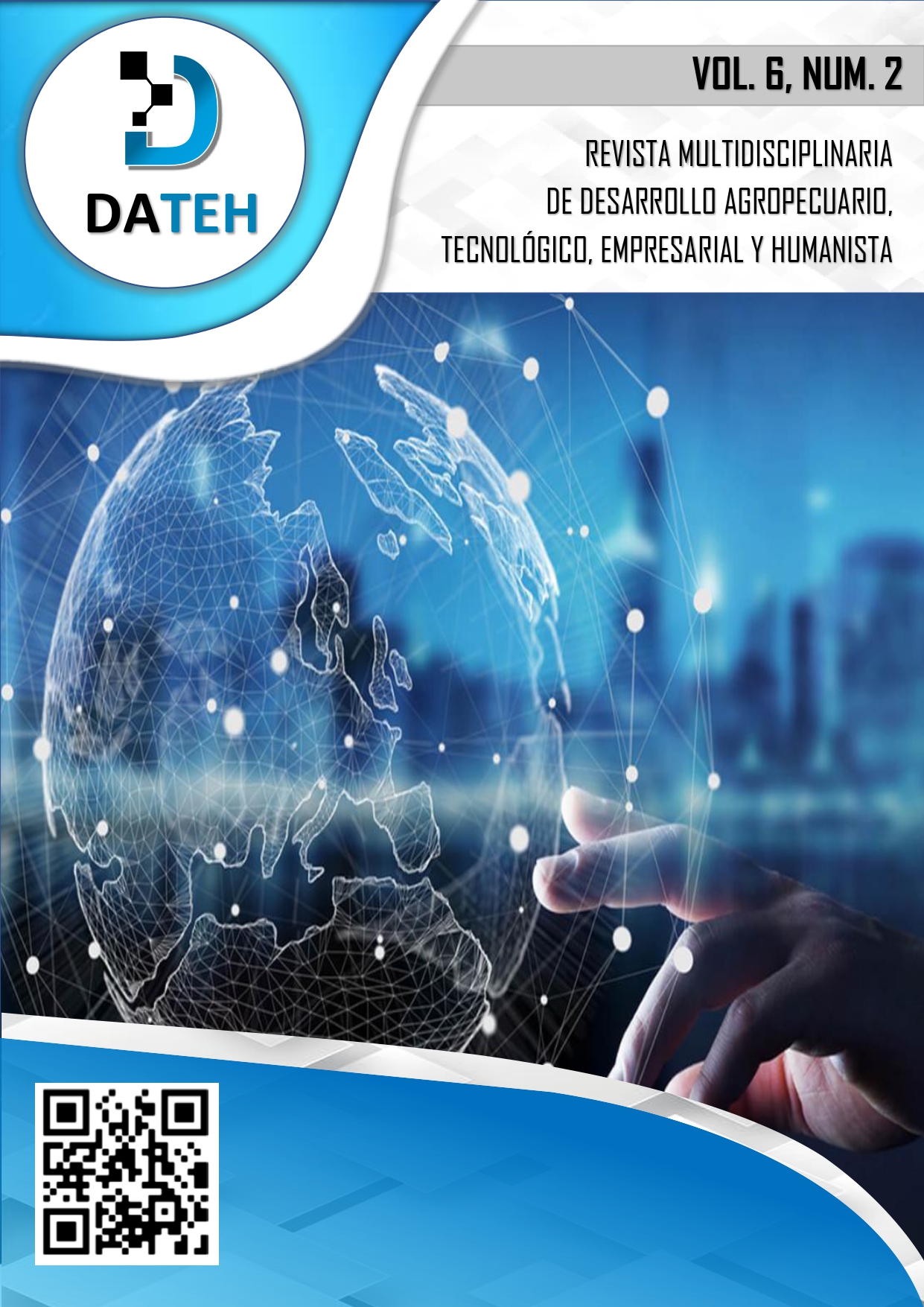Estudio exploratorio del uso de las TIC en la modalidad de educación M-learning (Mobile Learning)
Resumen
El modelo de aprendizaje basado en el uso de dispositivos móviles o M-learning se presenta como una de las tecnologías emergentes con un importante impacto en los procesos educativos presentes y futuros, debido que, la facilidad de acceso a la información en cualquier momento y en cualquier lugar permite desarrollar una experiencia de aprendizaje flexible y personalizado en la que el contexto es importante. El M-learning es el resultado de una combinación del E-learning con los dispositivos móviles, con la capacidad de propiciar experiencias educativas en cualquier situación, lugar y momento, trasladando los procesos de aprendizaje a una nueva dimensión al poder cubrir necesidades educativas urgentes con movilidad y alta interactividad. En base a lo anterior se desarrolló la presente revisión bibliográfica con el objetivo de estudiar el uso de las TIC en la modalidad de educación M-learning, permitiendo dejar en evidencia el trabajo investigativo realizado en esta área, así como el conocimiento de los aportes de esta metodología a los procesos educativos, los cuales siempre están orientados a obtener un aprendizaje significativo, que trascienda a la vida cotidiana, profesional y laboral de los estudiantes.
Descargas
Citas
Bas, M., & Sarigöz, O. (2018). Determining the Readiness Levels of Pre-Service Teachers towards Mobile Learning in Classroom Management. Educational Research and Reviews, 13(10), 382-390.
Bere, A., & Rambe, P. (2019). Understanding Mobile Learning Using a Social Embeddedness Approach: A Case of Instant Messaging. International journal of education and development using information and communication technology. https://www.semanticscholar.org/paper/Understanding-Mobile-Learning-Using-a-Social-A-Case-Bere-Rambe/d08543fded60d3cb40eab491bce773135087e980
Brown, S. (2018). An Investigation of Faculty Perceptions About Mobile Learning in Higher Education. Theses and Dissertations. https://nsuworks.nova.edu/fse_etd/182
Çelik, H. C., & Karayaman, S. (2018). Investigating Attitudes of Prospective Mathematics Teachers towards the Use of Mobile Learning at a Higher Learning Institution. Universal Journal of Educational Research, 6, 1784-1794. https://doi.org/10.13189/ujer.2018.060823
Chirino-García, R. C., & Hernández-Corona, J. (2020). M-learning: Estrategia para la promoción del aprendizaje electrónico móvil en instituciones de educación superior. EPISTEME KOINONIA, 3(5), 102-121.
Desmarais, M. C., & Baker, R. S. J. d. (2012). A review of recent advances in learner and skill modeling in intelligent learning environments. User Modeling and User-Adapted Interaction, 22(1), 9-38. https://doi.org/10.1007/s11257-011-9106-8
Enayati T, Yazdan Panah Nozari A, Behnamfar R, & Ghafari Hamedani S. S. (2014). Cell Phone Applicability in Providing Educational Content to Students. Education Strategies in Medical Sciences, 7(2), 115-120.
Ennouamani, S., Akharraz, L., & Mahani, Z. (2019). Integrating ICT in Education: An Adaptive Learning System Based on Users’ Context in Mobile Environments. En Y. Farhaoui & L. Moussaid (Eds.), Big Data and Smart Digital Environment (Vol. 53, pp. 15-19). Springer International Publishing. https://doi.org/10.1007/978-3-030-12048-1_3
Gan, C. L., & Balakrishnan, V. (2014). Determinants of mobile wireless technology for promoting interactivity in lecture sessions: An empirical analysis. Journal of Computing in Higher Education, 26(2), 159-181. https://doi.org/10.1007/s12528-014-9082-1
García-Bullé, S. (2019, junio 20). ¿Qué es el m-learning? ¿Es una opción viable para la educación del siglo XXI? Observatorio / Instituto para el Futuro de la Educación. https://observatorio.tec.mx/edu-news/que-es-mobile-learning/
Hashemi, M., Azizinezhad, M., Najafi, V., & Nesari, A. (2011). What is Mobile Learning? Challenges and Capabilities. Procedia - Social and Behavioral Sciences, 30, 2477-2481. https://doi.org/10.1016/j.sbspro.2011.10.483
Hernández, T. (2010). M-learning como Estrategia de Diversificación en Ambientes Colaborativos. Universidad Rafael Belloso Chacin. http://190.168.5.19/index.php/cled/article/viewFile/285/305
Huang, H.-C., Wang, T.-Y., & Hsieh, F.-M. (2012). Constructing an Adaptive Mobile Learning System for the Support of Personalized Learning and Device Adaptation. Procedia - Social and Behavioral Sciences, 64, 332-341. https://doi.org/10.1016/j.sbspro.2012.11.040
İlçi, A. (2014). Investigation of pre-service teachers’ mobile learning readiness levels and mobile learning acceptance levels [Master Thesis, Middle East Technical University]. https://open.metu.edu.tr/handle/11511/23452
Kaliisa, R., & Picard, M. (2017). A systematic review on mobile learning in higher education: The African perspective. 16, 1-18.
Kitchenham, B. (2004). Procedures for Performing Systematic Reviews. Keele, UK, Keele Univ., 33. https://www.researchgate.net/publication/228756057_Procedures_for_Performing_Systematic_Reviews
Kristoffersent, S., & Ljungberg, F. (2018). Representing Modalities in Mobile Computing. Wireless Networks, 1-7.
Liaw, S.-S., Hatala, M., & Huang, H.-M. (2010). Investigating acceptance toward mobile learning to assist individual knowledge management: Based on activity theory approach. Computers & Education, 54(2), 446-454. https://doi.org/10.1016/j.compedu.2009.08.029
Mahat, J., Ayub, A. F. M., Luan, S., & Wong. (2012). An Assessment of Students’ Mobile Self-Efficacy, Readiness and Personal Innovativeness towards Mobile Learning in Higher Education in Malaysia. Procedia - Social and Behavioral Sciences, 64, 284-290. https://doi.org/10.1016/j.sbspro.2012.11.033
Mohammadi, M., Sarvestani, M. S., & Nouroozi, S. (2020). Mobile Phone Use in Education and Learning by Faculty Members of Technical-Engineering Groups: Concurrent Mixed Methods Design. Frontiers in Education, 5. https://www.frontiersin.org/articles/10.3389/feduc.2020.00016
Rosman, P. (2008). M-LEARNING - AS A PARADIGM OF NEW FORMS IN EDUCATION. Biblioteca Digital de La Universidad de Bohemia Occidental En Pilsen, 1(1), 119-125.
Stošić, L., & Bogdanović, M. (2013). M-LEARNING - A NEW FORM OF LEARNING AND EDUCATION. International Journal of Cognitive Research in Science, Engineering and Education (IJCRSEE), 1(2), Article 2.
Thomas, K., O’Bannon, B., & Britt, V. (2014). Standing in the Schoolhouse Door: Teacher Perceptions of Mobile Phones in the Classroom. Journal of Research on Technology in Education, 46, 373-395. https://doi.org/10.1080/15391523.2014.925686
Uzunboylu, H., & Ozdamli, F. (2011). Teacher perception for m-learning: Scale development and teachers’ perceptions. Journal of Computer Assisted Learning, 27(6), 544-556. https://doi.org/10.1111/j.1365-2729.2011.00415.x.



